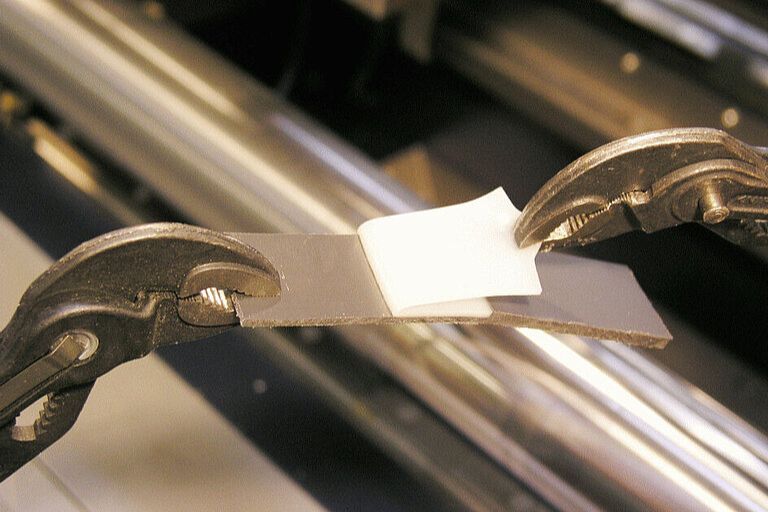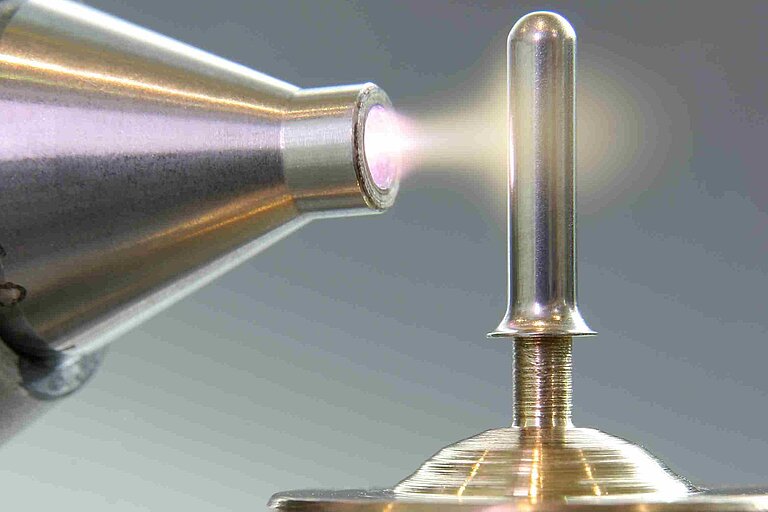Plasma treatment improves moisture impermeability of hybrid components
From high-voltage lines to surface mount components (SMDs), plastic-to-metal bonds are commonly used to fix electrical contacts and protect them against external environmental (weather) conditions. The types of protection are categorized according to IP classes.
Metal contacts can be made of tinned alloys, aluminum, copper or even gold plating. The area surrounding the plastic-to-metal bond is prone to attack by a wide range of chemicals. Since the metal surface is polar, and has a high affinity for fluids (such as water, grease and oil), a film of moisture often collects on metal contacts. This can lead to corrosion that reduces the adhesion of the chemical bond (except for gold).

Plasmatreat has developed solutions that reliably and durably prevent creep corrosion around metal contacts using both the Aurora low-pressure plasma technique and the Openair-Plasma® method.
The metal surface is coated with a plasma-deposited nano-scale polymer layer that levels the surface and fills gaps. The polymer coating creates optimal conditions for bonding of the plastic in injection molding and extrusion processes (where the molding compound is often polyamide-based such as PA or PA6).



